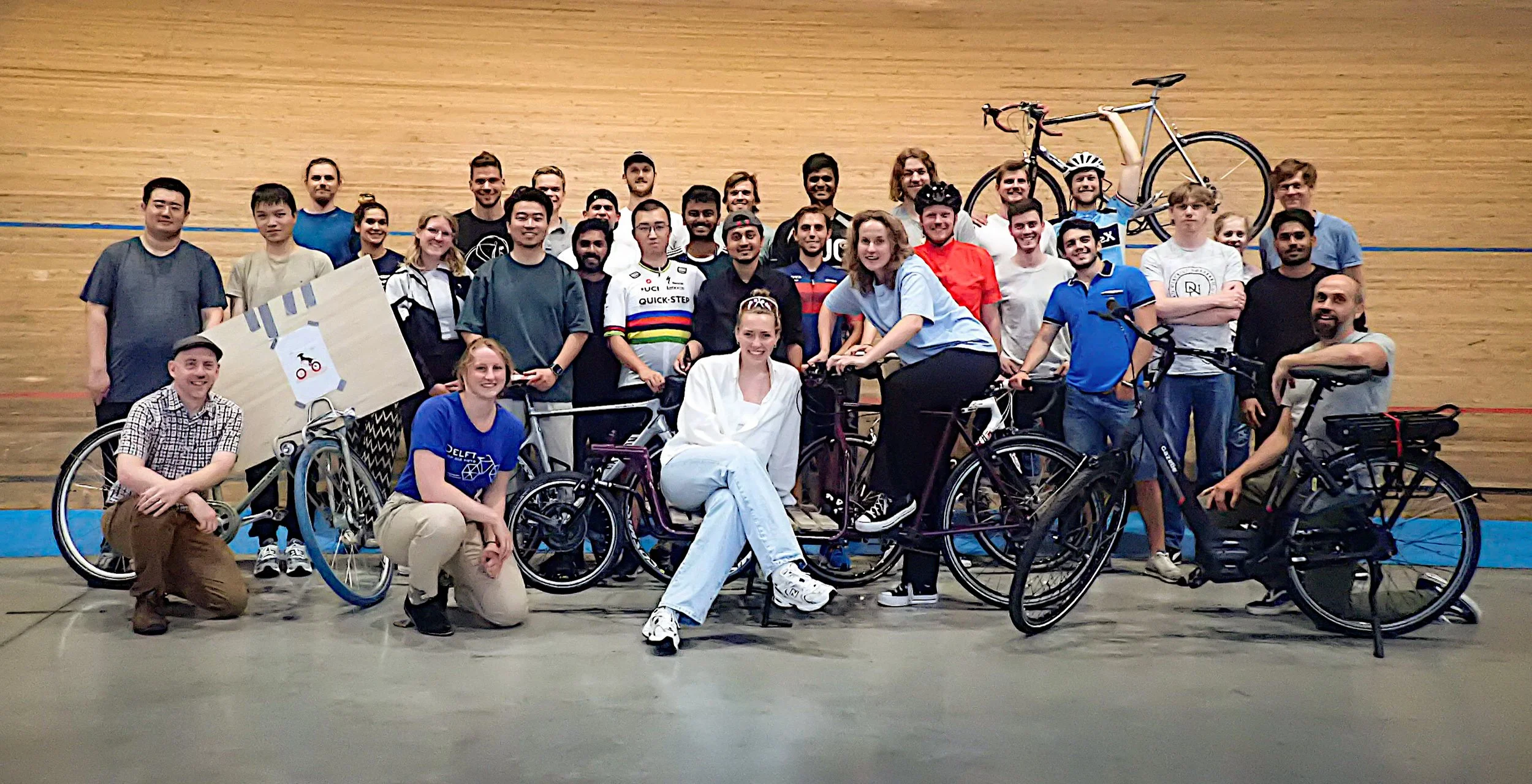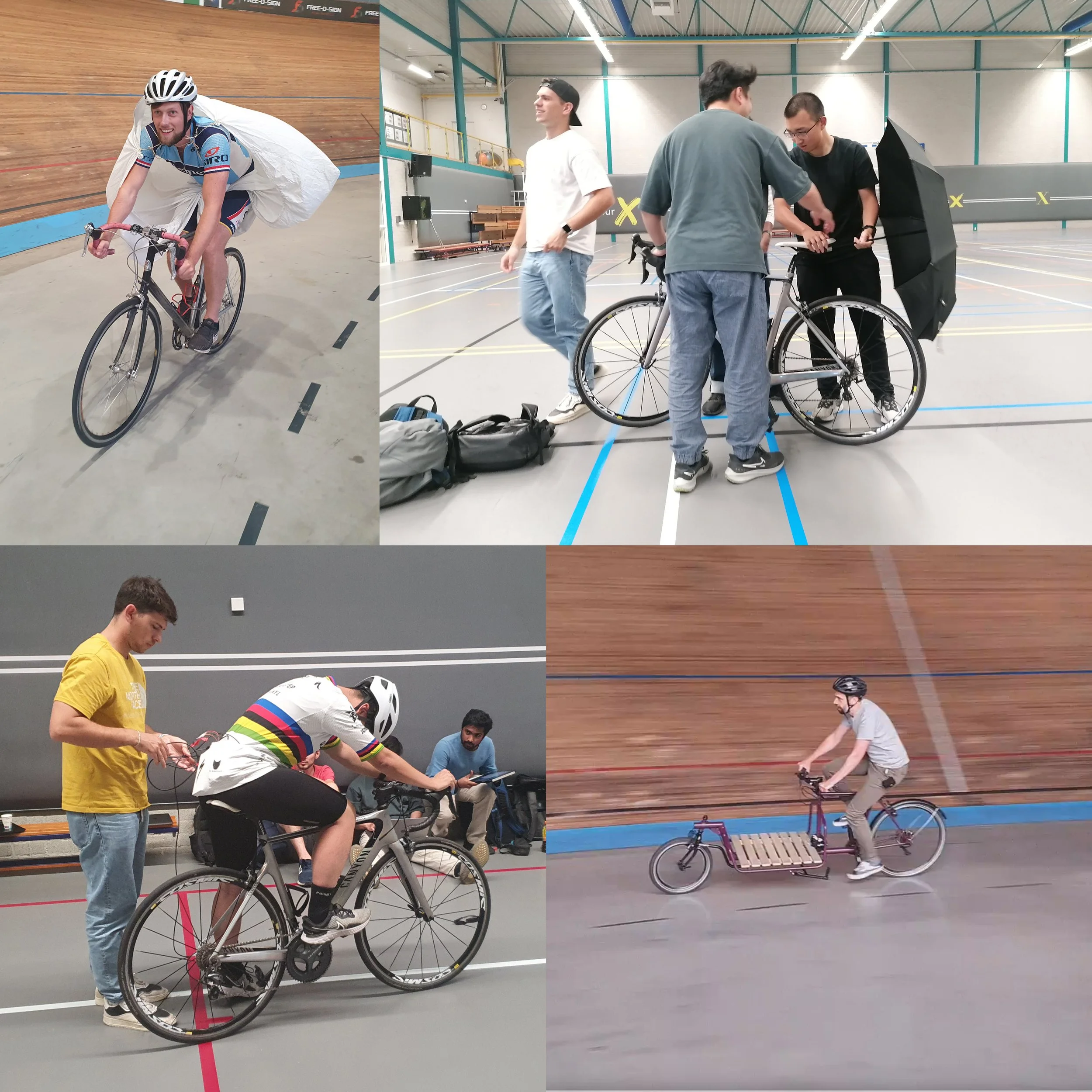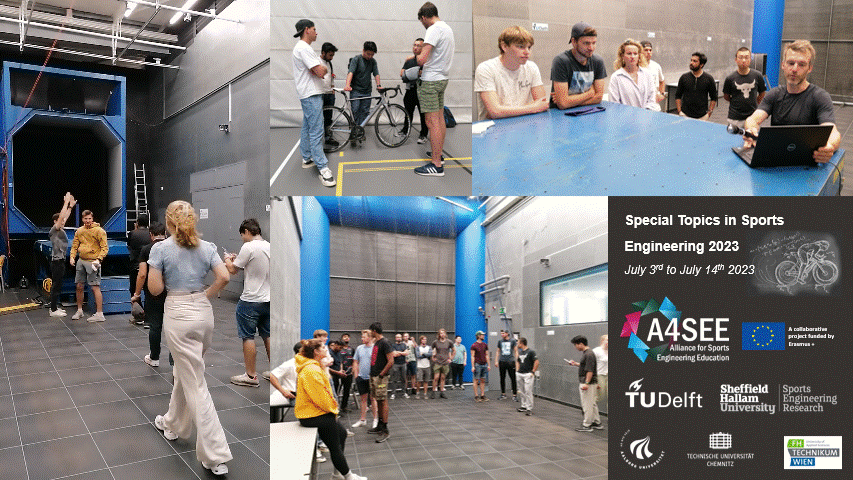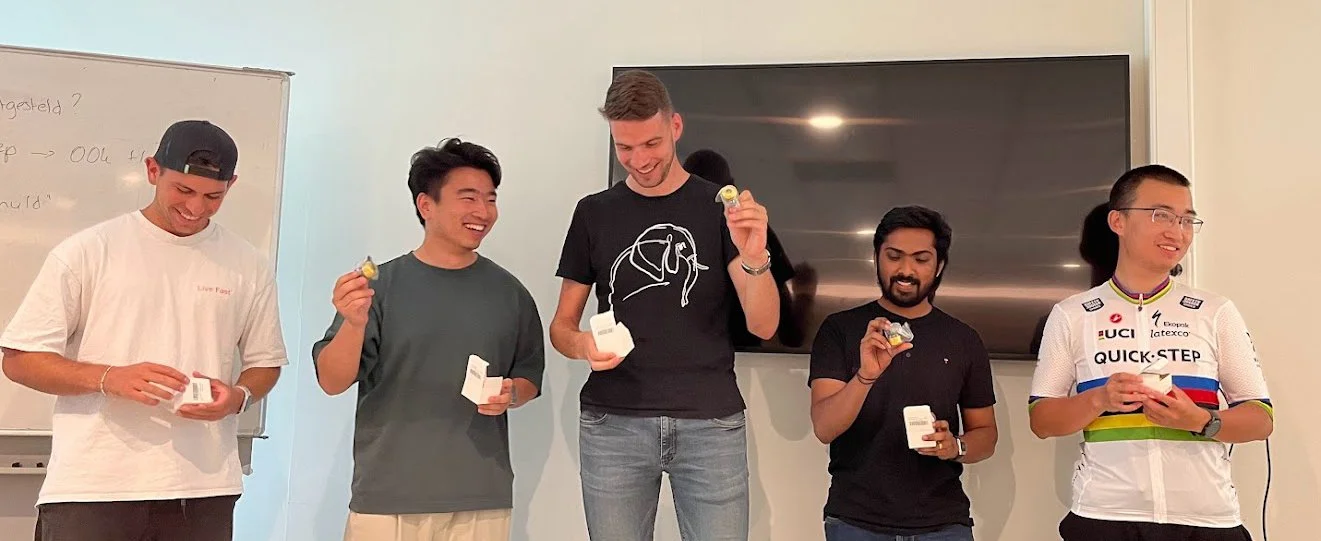Special Topics in Sports Engineering Week 2
Special Topics in Sports Engineering 2023
The 2023 edition of Special topics in sports engineering has come to a close with teams of students competing in a cycling challenge at the Alkmaar Velodrome in the Netherlands. Two weeks earlier the students were challenged to create a predictive performance model for a cyclist pedalling around a velodrome. The cyclist was to be a member of their team, and the students also had to provide a bicycle of their choice. What followed was an intense two weeks of investigative study to understand both the physical capabilities of their cyclist and the mechanical performance of the system.
Special Topics in Sports Engineering 2023 Cohort
To assist them in this task a series of specialist lectures, workshops and activities were devised and delivered by our staff from the Erasmus+ funded A4SEE network. This edition of the two-week course hosted at TU Delft, had 28 Masters students from Delft, Sheffield, Chemnitz, and Vienna in attendance.
The first week of the course had been spent understanding the physiological capabilities of the cyclist, as detailed in our previous blog, and devising mechanical tests to understand the aerodynamic and rolling capabilities of their chosen bike. This year we had a wide range of cycles including road bikes, SwapFiets, an electric bike, and a Dutch classic a BakFiets!
Students testing at TU Delft and at the Alkmaar Velodrome
Although we had not revealed the exact nature of the Alkmaar velodrome challenge, the students knew the final event would require them to assess the impact of a drastic aerodynamic alteration to their system. As ever they didn’t disappoint, alterations included a parachute fashioned from a bedsheet, and a cyclist wingsuit constructed of refuse sacks!
Week 2 had begun with a trip to the TU Delft Jet Propulsion wind tunnel, to learn about the aerodynamic performance gains that are achievable through careful design of cycling skinsuits. Unfortunately, for the students, we didn’t let them use this 500 kW tunnel to determine their own aerodynamics. Instead, they devised their own powered and roll down experiments. Accelerometers within mobile phones, the TU Delft Bicycle lab treadmill, and a home made Arduino powered speedometer all featured. One group went as far as to test in the Rotterdam Maastunnel, an attempt to derive the most accurate coefficients in the controlled environment this tunnel affords.
TU Delft Jet Propulsion wind tunnel
48 hours before the final Alkmaar challenge staff revealed the test the students were to conduct. The students were required to conduct two laps from a standing start, and then to coast until they came to a halt, predicting split times, and coast-down distance. This needed to be preformed with and without the drastic aerodynamic alteration really testing the accuracy of the coefficients they had determined. Coaching of the cyclists was not permitted before the final event and predictions had to be submitted to staff prior to testing. During the tests it was clear all the teams had manged to predict their lap splits reasonably well, the clear differentiation however came from the predicted coast-down distances which were all clearly underestimated.
Following an anxious wait, as final distances were measured and timings scrutinised, this year’s winner were finally revealed. The winning team managed to predict a coast-down distance within 8.64 m on their second run. Incidentally this was the same team who had travelled to measure their coefficients in the Maastunnel. It just shows going that extra mile can really count, or in this case win you the 2023 Special Topics gold bicycle bell!
2023 Golden Bell Winners!





